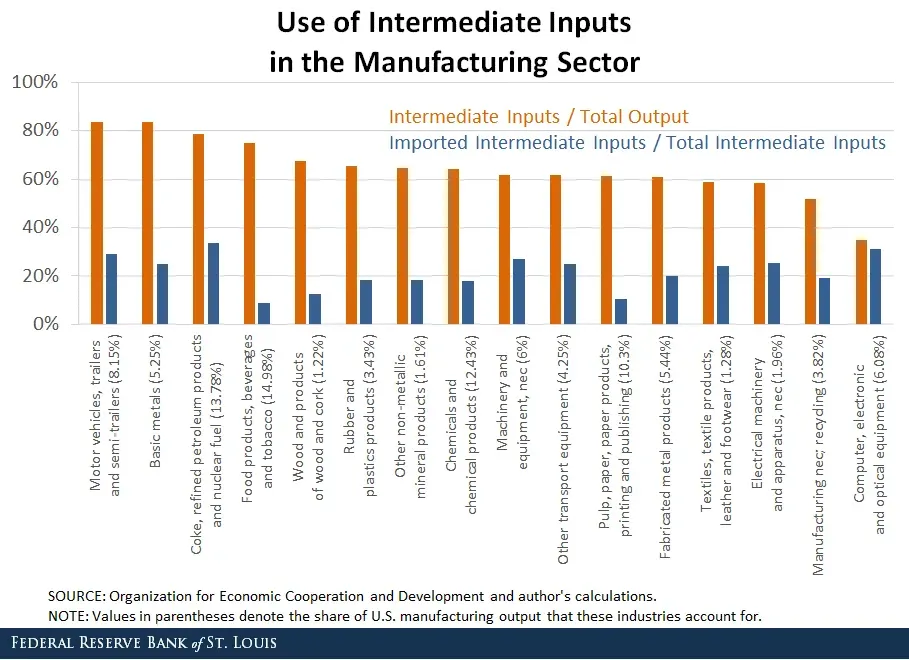The impact of U.S. tariffs on businesses is a growing concern, especially as President Trump’s trade policies create ripples across global markets. The implementation of import taxes aimed at European businesses has led to significant disruption, resulting in trade war effects that many companies are struggling to navigate. With uncertainty hovering over financial forecasts and supply chains, businesses in Europe are left contemplating their next steps in light of the evolving trade landscape. From the automotive industry to retail, the effects of Trump tariffs are felt deeply as firms adapt to shifting economic conditions. Engaging with business owners and employees affected by these changes is essential to understand the comprehensive implications of these tariffs on the broader economy.
Exploring the repercussions of U.S. trade policies reveals a complex web of challenges faced by companies operating internationally. The imposition of increased duties and tariffs has caused economic anxiety, particularly for enterprises engaged with European markets. As businesses deal with the fallout from these escalating trade tensions, many are left with questions about the sustainability of their operations and adaptability in response to fluctuating import costs. The widespread business uncertainty stemming from recent tariff announcements calls for a closer examination of strategies employed by organizations to mitigate risks and navigate this turbulent environment. Insights from entrepreneurs and managers will shed light on the broader implications for the economy and illustrate how different sectors are coping with the fallout.
Understanding the Impact of U.S. Tariffs on European Businesses
U.S. tariffs have imposed significant challenges for European businesses, reshaping trade dynamics and introducing economic uncertainty. As President Trump initiated these import taxes, many European companies found themselves navigating turbulent waters. Tariffs that began at a hefty 20 percent on imports from EU member states have created ripples in pricing strategies, profit margins, and overall market accessibility. This heightened cost for transatlantic trade inevitably prompts many businesses to re-evaluate their supply chains and pricing structures, highlighting the broader implications of political decisions on global commerce.
The effects of these tariffs do not merely reside within sales reports; they extend to employment decisions and investment strategies. With soaring import taxes, European business owners are compelled to make difficult choices about hiring freezes and expansion plans, all of which contribute to a pervasive climate of business uncertainty. Many companies are rethinking their operational footprints, with considerations of relocating some production closer to the U.S. market to circumvent these punitive measures.
The Trade War Effects on Europe’s Economic Landscape
The ongoing trade conflict, particularly between the U.S. and China, exacerbates the challenges faced by European firms. As tariffs are levied, European business owners report not just increased costs due to Trump’s trade policies but also heightened competition from countries like China and Canada. This trade war has compelled European enterprises to adapt quickly, often shifting strategies to remain competitive in an increasingly volatile market environment. The uncertainty surrounding future tariff policies only magnifies this pressure, leading to a reevaluation of operational and strategic directions.
Moreover, this trade war extends beyond immediate financial ramifications; it invites long-lasting changes in consumer behavior and industry standards. Businesses are being forced to innovate not just in product offerings but also in their trade relations. Networking with partners in Canada or optimizing supply chains that can absorb tariff impacts forms part of the tactical responses undertaken by European companies. As they navigate these complexities, the collective economic health of Europe hangs in the balance, charged by the shifting winds of international trade relationships.
Trump Tariffs: A Call for European Business Voices
European business owners are encouraged to share their experiences with the implications of U.S. tariffs through platforms like The New York Times. Engaging in discourse about these tariffs not only strengthens community insights but also leads to informed reporting that reflects real-world impacts. By vocalizing the challenges and adaptations required in light of the changing trade landscape, businesses can collectively advocate for policies that foster equitable trade practices. The narrative created through these shared experiences highlights the resilience and strategic agility exhibited by European firms amidst challenging circumstances.
The solicitation for business input also underscores the crucial role of media in shedding light on the complexities of the current economic climate. Feedback received by journalists can provide crucial data points, enabling more nuanced discussions that address how specific sectors are uniquely affected by import taxes. Understanding these impacts on various industries can help policymakers devise interventions that mitigate adverse effects while promoting economic collaboration between Europe and the United States.
Navigating Business Uncertainty Amidst Tariff Changes
The uncertainty surrounding U.S. tariffs has led to a pervasive atmosphere of apprehension among European businesses. Faced with fluctuating import taxes and the potential for more aggressive trade measures, many companies are grappling with disrupted supply chains and unpredictable operational costs. This unpredictability hinders long-term planning, as businesses find themselves constrained in their ability to strategize effectively. Many are exploring alternate markets or reconfiguring their inventory approaches to buffer against price increases on imported goods.
Moreover, the hesitance in investment decisions reflects a broader wariness to commit resources in an unstable economic environment. Smaller enterprises, in particular, lack the cushion to absorb unexpected costs, prompting delays in hiring, expansion, and even day-to-day operational decisions. As companies continue to adapt, it is critical that robust channels for information sharing and support systems be established to navigate these turbulent waters.
The Role of Customer Sentiment During Trade Wars
Customer sentiment plays a significant role in shaping the responses of businesses under the strain of tariffs and trade wars. As consumer purchasing power may be affected by rising prices due to import taxes, businesses must remain attuned to shifting market landscapes. Retailers and service providers are increasingly challenged to communicate effectively with their customers about how tariff-induced increases impact pricing. Transparent communication can foster consumer loyalty, mitigating backlash from price changes and enabling businesses to iterate on their marketing and operational strategies thoughtfully.
Furthermore, understanding customer sentiment can inform decision-making processes about product development and market entry strategies. Companies that actively seek feedback from their consumer base may better position themselves to pivot or adapt offerings in line with evolving preferences. This two-way dialogue can be invaluable in maintaining competitiveness despite broader economic turbulence attributable to U.S. tariffs.
Unique Challenges for the Automotive Industry
The automotive sector in Europe has been notably impacted by the U.S. tariffs and broader trade war dynamics. Tariffs on automotive imports not only rise costs but also challenge the industry’s reliance on global supply chains that span both continents. European car manufacturers, already grappling with changing regulatory landscapes, face the dual pressures of rising production costs and shifting consumer preferences toward domestic brands due to uncertainty about pricing.
Additionally, the impetus to localize production has never been stronger, as companies seek to eliminate the exposure created by tariffs. Diversifying manufacturing locations and investing in advanced technologies can help European automakers remain competitive and agile. However, these changes require upfront investments that many firms might hesitate to commit amid the unpredictability associated with trade policies.
Exploring Strategic Partnerships in the Midst of Tariffs
In light of the challenges posed by U.S. tariffs, many European businesses are reevaluating their strategic partnerships both within the continent and internationally. Collaborating with local suppliers can help mitigate the risks associated with import taxes, while also fostering a sense of community resilience. Companies are discovering that agile partnerships can ensure a steadier supply of materials and resources, thereby providing competitive advantages amid fluctuating trade barriers.
Moreover, exploring alliances with non-European firms can create opportunities for market entry and shared resources. By fostering these strategic partnerships, businesses can leverage shared knowledge and resources to navigate the complexities of global supply chains better. This collaboration not only enhances product offerings but also fosters innovation – critical in a climate where adaptability is key to survival.
Future Outlook: Adapting to Ongoing Trade Policies
Looking ahead, European companies must brace for the long-term implications of ongoing U.S. trade policies. As administrations change and new tariffs may emerge, businesses need to cultivate adaptive strategies that allow for flexibility in operations and financial plans. This foresight becomes crucial for maintaining stability and ensuring lasting resilience against potential shocks from future trade policies.
The drive for innovation will be paramount, compelling companies to invest in research and development, explore alternative markets, and optimize manufacturing processes. By staying proactive, European businesses can position themselves not just to withstand the current challenges but to capitalize on new opportunities that may arise from shifting global trade relationships.
Engaging with the Media: Sharing Your Experience
As businesses navigate the delicate landscape of U.S. tariffs and their ramifications, engaging with media outlets such as The New York Times offers a golden opportunity for European businesses to share their unique challenges and adaptations. Responding to calls for input can amplify their voices, contributing to a broader narrative that highlights the human and organizational toll of trade wars.
Articulating individual stories allows businesses to connect with a wider audience, helping to illuminate how tariffs resonate through everyday lives and jobs. By fostering strong narratives around these experiences, European firms can contribute to meaningful discussions that may influence public policy and draw attention to the need for cooperative solutions within international trade dynamics.
Frequently Asked Questions
How are U.S. tariffs impacting European businesses in the current trade environment?
U.S. tariffs, particularly those imposed during President Trump’s trade war, have significantly impacted European businesses by increasing import taxes, leading to higher costs for materials and goods. This creates challenges in pricing strategies and profit margins, ultimately affecting competitiveness in both U.S. and global markets.
What effects do Trump tariffs have on the supply chain for businesses operating in Europe?
The Trump tariffs have caused disruptions in supply chains for European businesses. Increased import duties complicate logistics, potentially leading to delays and higher costs. Businesses may need to rethink their sourcing strategies or consider relocating production closer to the U.S. market to mitigate these impacts.
Are European companies delaying expansion plans because of U.S. import taxes?
Yes, many European companies are postponing expansion plans due to the uncertainty created by U.S. import taxes. The unpredictability of tariff rates and trade negotiations makes it difficult for businesses to forecast future costs and revenues, leading to cautious investment strategies.
How do U.S. tariffs affect competition among businesses in Europe?
U.S. tariffs increase competition among European businesses as they face higher costs when exporting to the U.S. This allows competitors from countries not subjected to the same tariffs, such as China or Canada, to gain an advantage, forcing European companies to reassess their market strategies.
What adjustments are European businesses making in response to U.S. tariffs?
In response to U.S. tariffs, many European businesses are altering their supply chains, seeking alternative sourcing for materials or production. Additionally, they are evaluating pricing structures and may even consider moving some production capabilities to the U.S. to avoid high import taxes.
How does the uncertainty from U.S. tariffs affect employment in European companies?
The uncertainty created by U.S. tariffs is leading many European companies to delay hiring or reduce workforce expansions. Businesses are adopting more conservative approaches until there is clarity surrounding trade policies and their potential impacts on profitability.
What long-term trends can we expect regarding U.S. tariffs and European business operations?
In the long term, U.S. tariffs may result in reshaped global trade dynamics, with European businesses increasingly diversifying their markets and possibly relocating production to mitigate risks associated with U.S. import taxes. Companies might also invest more in innovation to maintain competitiveness despite tariff challenges.
How can European businesses manage the risks associated with trade war effects?
European businesses can manage risks from trade war effects by diversifying their supply chains, exploring domestic production options, and investing in technology solutions that enhance efficiency. Engaging in proactive trade policy advocacy can also help them navigate tariff landscapes more effectively.
| Key Point | Description |
|---|---|
| Impact on European Businesses | President Trump’s tariffs have led to uncertainty for companies in Europe, affecting planning and operations. |
| Tariff Rates | The tariffs began at 20% on imports from the EU and were later scaled down to 10% with the aim of negotiating trade deals. |
| Industry Effects | Particular industries like automotive and finance are struggling due to altered supply chains and economic expectations. |
| Call for Responses | The New York Times is collecting feedback from business owners on the impact of tariffs to better inform their reporting. |
| Future Considerations | Businesses are contemplating relocating some of their production to the U.S. or adjusting their supply chains. |
Summary
The U.S. tariffs impact on businesses is a pressing concern for many companies in Europe. As businesses navigate the complexities of these trade taxes, the uncertainty has forced them to reassess their strategies. The significant tariffs imposed by President Trump have not only created a tumultuous environment for European companies but have also raised questions about future operations. Understanding this intricate relationship is crucial as businesses respond to the changing economic landscape.



